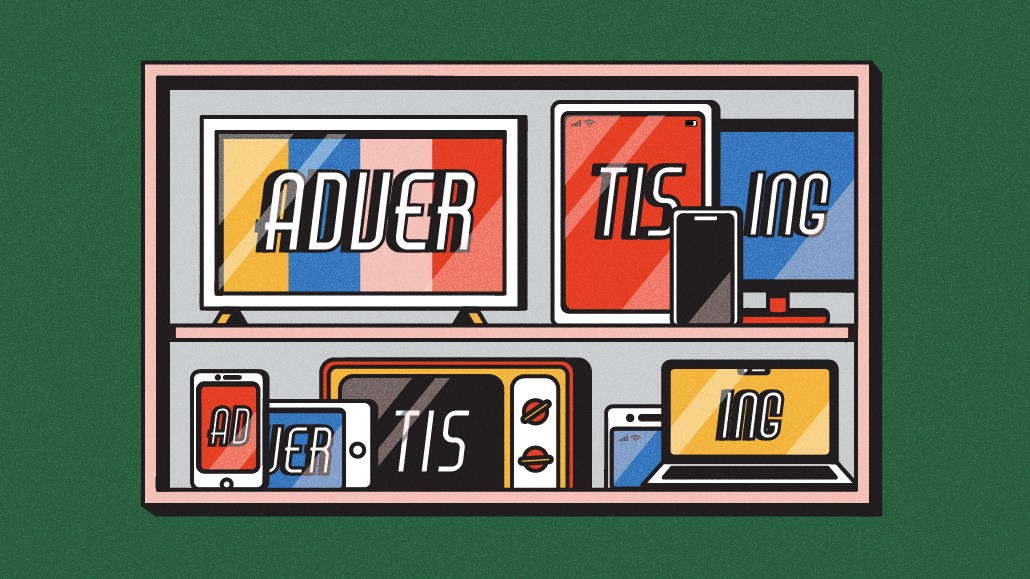Secure your place at the Digiday Media Buying Summit in Nashville, March 2-4
Microsoft’s ad ambitions for ChatGPT-powered Bing bring new opportunities — and questions

What’s 1% of market share worth? In the world of search, that’s a multi-billion dollar question.
It’s now been a week since Microsoft revealed its new ChatGPT-powered Bing search engine and accompanying Edge browser. The way Microsoft sees it, just gaining another 1% of market share could give the company another $2 billion in ad revenue.
Even without any new ChatGPT-specific ad products — at least not yet — experts are wondering what the future of advertising on Bing might look like, and whether it’ll be able to win over both users and marketers alike.
Some companies are already seeing ways they might benefit from Bing’s latest iteration. On last week’s earnings call for the Israel-based digital advertising company Perion Network, CEO Doron Gerstel said ChatGPT will “revolutionize Bing search capabilities” while increasing ad spending and therefore boosting Perion’s own search business if more advertisers bid and subsequently spend on Bing ads.
In an interview with Digiday, Gerstel pointed out that Perion — an official Bing search partner — already transfers 20 million monetized searches a day to relevant ads across Bing. He added that quality search results will be key.
“The trend is developing more of a dialogue rather than [showing] results,” Gerstel said. “Even the way you’re asking [ChatGPT] is like you’re talking with a person. It’s making it as user-friendly as possible.”
Still, much of the future is still hypothetical. In a research note late last week, analysts for the credit rating agency Moody’s said Microsoft’s AI integrations create long-term profit potential, but the opportunities for search ads are yet unproven.
“Any share shift in the search ad market is difficult to predict at this time,” Moody’s analysts wrote. “To gain market share, Microsoft will have to convince both consumers as well as advertisers to switch to its digital ad platforms and demonstrate that its technology can deliver search results that have a higher value for both. Consumers’ search habits are hard to change, especially given Google’s long history in the mobile and desktop search markets.”
Bing has already benefited from ChatGPT. For example, more than 1 million people joined the waitlist to preview the new AI-powered Bing in just 48 hours, according to a tweet from Yusuf Mehdi, Microsoft’s head of consumer marketing.
So far, web traffic has been fairly up and down. The day after Microsoft’s big announcement on Feb. 7, daily traffic jumped from 39.9 million to 43.7 million before falling back to between 37 million and 39 million over the past few days. However, Similarweb’s weekly search keyword breakdown shows a 700% increase for “bing ai” as people looked for more info about what Microsoft’s news could mean for the future of search.
The number of people visiting OpenAI’s website might also be a sign of what’s to come: Web traffic has grown to 672 million from just 18.3 million in December, according to Similarweb, which said ChatGPT drives 92% of OpenAI’s web traffic.
Some search marketers are testing Bing’s new features to see what they mean for existing ad products — and already see some flaws. For example, Gael Breton, founder of Authority Hacker, spotted ads that appeared above organic links. In a tweet about the findings, Breton said he was impressed with Bing’s ability to handle travel queries via ChatGPT, but also noticed all the links to hotels were broken. He also researched campaigns for AdWords, which was “good” at first but still left him looking for more info on YouTube. The upheaval in search could also benefit others besides Bing. Alessandro Creso, vp of search at BrainLabs, said it could also give startups like ad-free search engine and browser Neeva — which released its own ChatGPT-like feature a few weeks ago — a chance to compete, especially since it also has the added benefit of a privacy-first component. That said, although Bing’s status as first to market gives Microsoft a bit of an edge, old search habits are hard to shake, and many Google users still use Chrome rather than Edge.
“The opportunity is there,” Creso said. “When there is so much of a shift in the industry we have to take into account everyone else…It does give other engines a chance to catch up rather than just being underdogs.”
There are also questions about how ads will be placed and labeled within search results. Will they be clearly marked as ads and will those ads be appealing to users that might instead just click directly to whatever the chat says?
Matthew Quint, director of the Center on Global Brand Leadership at Columbia University, said it’s becoming increasingly tricky on various tech platforms to know what’s advertising and what isn’t.
“That lack of transparency on what’s being bought and what’s organic search is disappearing, which is terrible for a consumer,” Quint said. “When you’re highly dependent on advertising, the goal of ‘bettering society’ becomes something you need to compromise on for your bottom line in ways.”
More in Media

From feeds to streets: How mega influencer Haley Baylee is diversifying beyond platform algorithms
Kalil is partnering with LinkNYC to take her social media content into the real world and the streets of NYC.

‘A brand trip’: How the creator economy showed up at this year’s Super Bowl
Super Bowl 2026 had more on-the-ground brand activations and creator participation than ever, showcasing how it’s become a massive IRL moment for the creator economy.

Media Briefing: Turning scraped content into paid assets — Amazon and Microsoft build AI marketplaces
Amazon plans an AI content marketplace to join Microsoft’s efforts and pay publishers — but it relies on AI com stop scraping for free.








